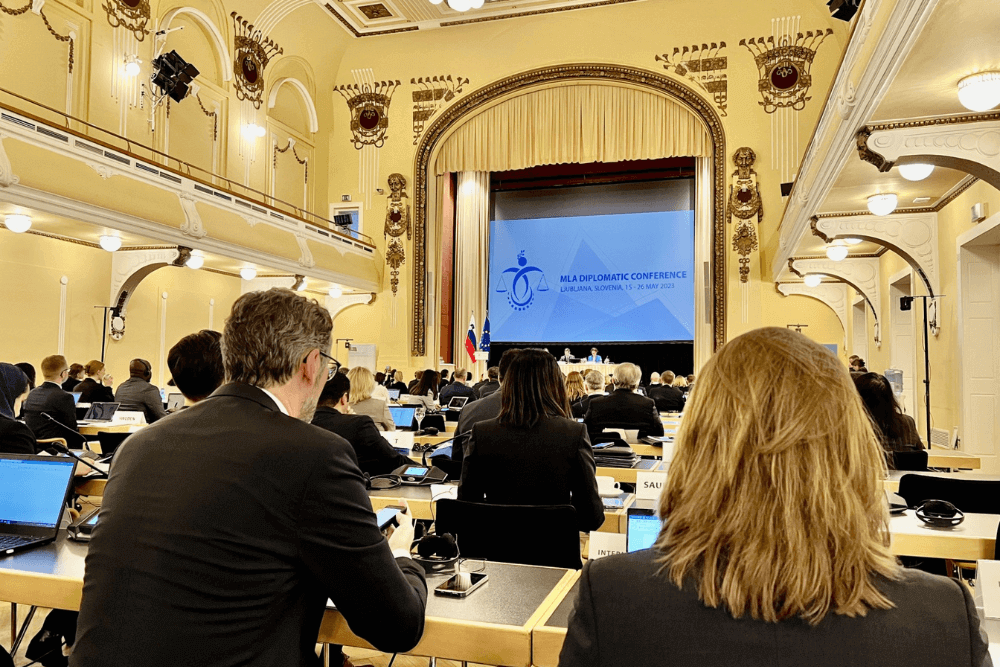The International Commission of Jurists is calling on States participating in negotiations underway in Slovenia on a multilateral cooperation treaty (MLAT) aimed at bringing to justice those responsible for the most serious crimes under international law, to oppose efforts by a small group of States, led by the United Kingdom and France, to insert provisions that would fatally undermine the effectiveness of the treaty.
Proposed amendments by the UK and France, would make the exercise of jurisdiction against persons suspected of perpetrators of such offenses as genocide, war crimes and crimes against humanity merely optional rather than obligatory, where those persons are found on the territory of a State.
Under international law, States have an obligation to prosecute or extradite for prosecution those found in its territory and accused of responsibility for serious crimes under international law. Yet Under the UK-French proposal, the State need not take any action with regard to the alleged perpetrator. Instead, that perpetrator would be able to walk free.
Responding to the proposal, Ian Seiderman, ICJ Legal and Policy Director of the said “the UK-French proposal would be a regressive step that serves to weaken, rather than fortify the international protection system and the global fight against impunity.”
“This proposal, if adopted, would run counter to the very object and purpose of the treaty which seeks to ensure that no country serves a safe haven for perpetrators of these heinous crimes,” said Ian Seiderman.
Debate on the new proposal comes as EU States mark 23 May as the EU Day Against Impunity. The day is currently being observed in Slovenia where State delegations of roughly 80 countries are gathered to conclude an MLA treaty meant to increase international cooperation and curtail impunity for the most serious crimes under international law. Delegations have called the treaty a needed step to ensure accountability considering the Russian invasion of Ukraine and protracted armed conflicts ongoing in many parts of the world.
Background
It is a general principle of international law that States must prosecute or extradite for prosecution those suspected of having committed of the most serious crimes under international law (principle of aut dedere aut judicare).
The Geneva Conventions of 1949, for example, specify that each High Contracting Party is obliged to search for persons alleged to have committed, or to have ordered to be committed the grave breaches, and to bring such persons, regardless of their nationality, before its own courts or hand the persons over for trial to another High Contracting Party. There is a similar obligation in the UN Convention Against Torture and the International Convention for Protection of all Persons from Enforced Disappearances, among other international, including regional, treaties. The UK and France are both State parties to each of the above-named Conventions, respectively, as are most of the States concluding negotiations for the MLAT.
Further, the draft treaty on Crimes Against Humanity, presently under discussion in the sixth Committee of the UN General Assembly, United Nations, also foresees the inclusion of the obligation to prosecute or extradite for crimes against humanity. To ensure consistency with that treaty, the MLAT would need to also contain an equivalent formulation.
Principle 21 of the UN Updated Set of principles for the protection and promotion of human rights through action to combat impunity provides:
States should undertake effective measures, including the adoption or amendment of internal legislation, that are necessary to enable their courts to exercise universal jurisdiction over serious crimes under international law in accordance with applicable principles of customary and treaty law. States must ensure that they fully implement any legal obligations they have assumed to institute criminal proceedings against persons with respect to whom there is credible evidence of individual responsibility for serious crimes under international law if they do not extradite the suspects or transfer them for prosecution before an international or internationalized tribunal.
Contact
Raquel Saavedra, ICJ International Legal Adviser, e: raquel.saavedra@icj.org




